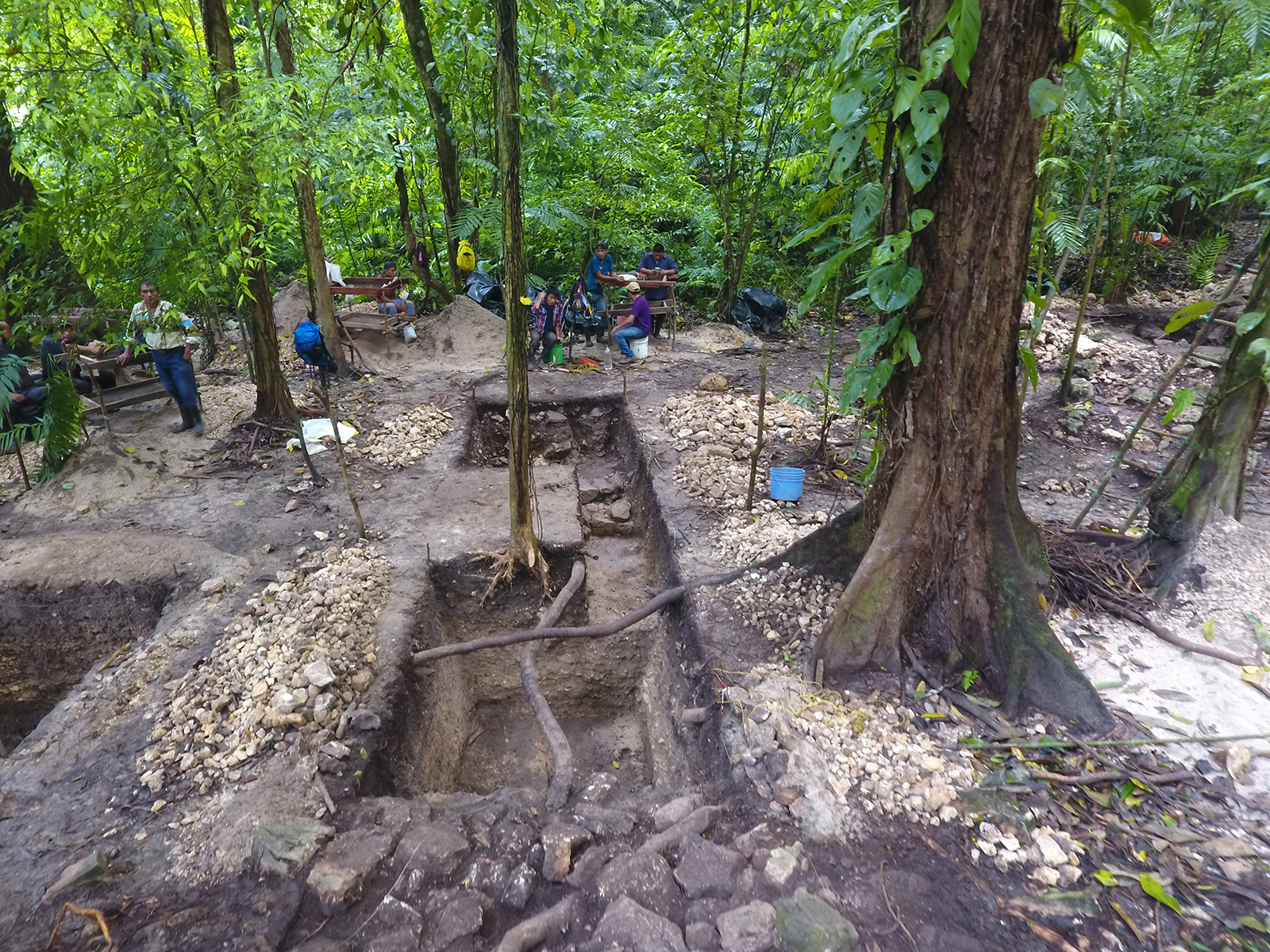Through their studies, anthropological archaeologists not only reconstruct the nuances of a particular past society but situate their studies in a greater comparative perspective to more broadly contribute to our understanding of the human experience. The undergraduate curriculum in anthropological archaeology emphasizes firm theoretical and methodological training in the discipline, while capitalizing on the department's focus on the archaeology of the Americas, especially indigenous and colonial New England, the American Southwest, and the Maya.

The Anthropological Archaeology track is ideal for students interested in pursuing archaeology, especially as specialists of the past societies of the Americas whose archaeologists train as anthropologists. This track allows students to focus on archaeological methods and approaches while learning broader anthropological theory and perspective.
- A foundational course in anthropological archaeology, to prepare students for future courses within the track, taken when students begin on the anthropological archaeology track:
- Past Forward: Discovering Anthropological Archaeology (ANTH0500)
- A foundational course in socio-cultural anthropology, which shares many of the same theoretical approaches to human societies as anthropological archaeology:
- Introduction to Cultural Anthropology (ANTH0100)
A course in anthropological archaeology methodology, to prepare students for further research:
Choose One:
- An Introduction to GIS and Spatial Analysis for Anthropologists and Archaeologists (ANTH1201)
- Material Culture Practicum (ANTH1621)
- Archaeology of College Hill (ANTH1725)
- Paleoethnobotany: Ancient Agriculture to Criminal Investigations (ANTH1740)
This requirement will be waived for students that have completed an archaeological field school. The field school must be approved in advance of its completion for the requirement to be waived. Per the broader requirements of the concentration, students must still complete nine anthropology credits at Brown or via transfer credits. Note that many field schools do not carry credit.
A course that involves detailed archaeological investigation of a geographic region to provide depth of training in the history and material culture of a particular place and society, taught by one of the Department’s archaeologists:
Choose One:
.jpg)
Mythic howler monkey, with acrobatic maize gods, serving dish, c. AD 380, El Diablo Founder's Tomb, Guatemala. Photo by Jorge Pérez de Lara, courtesy Brown University Archaeological Project, Stephen Houston Director. Classic Maya Civilization (ANTH1031)
- Ethnographies of Heritage: Communities of Landscape in the Mediterranean and Beyond (ANTH1126)
- Introduction to South American Archaeology (ANTH1505)
- Indians, Colonists, and Africans in New England (ANTH1624)
- Maize Gods and Feathered Serpents: Mexico and Central American in Antiquity (ANTH1640)
- Ancient Maya Writing (ANTH1650)
- Southwestern Archaeology (ANTH1692)
Other anthropological archaeology courses with significant geographic focus may be used to fulfill this requirement with DUS approval.
One 1000-level course in anthropology with significant archaeological, material culture, and/or museum studies component. A second geographic area course from the list above may be used to meet this requirement. Other regularly offered courses that meet this requirement include:
Choose One:
- Indigenous Archaeologies (ANTH1125)
- Global Historical Archaeology (ANTH1620)
- Archaeology of Death (ANTH1623)
- Bioarchaeology and Forensic Anthropology (ANTH1750)
- Lost Languages (ANTH1820)
Other anthropology courses with significant archaeological, material cultural, or museum studies focus may be used to fulfill this requirement with DUS approval.
Ancestral Tewa Pottery at Perage San_Ildefonso Pueblo. Photo by Mark Agostini. - Three anthropology courses of the student’s choosing. At least one of the electives will need to be at the 1000-level to meet the general requirements of the concentration.
- Senior Seminar, (Re)Making Anthropology (ANTH1990), normally taken in senior year, is designed to provide students a firm understanding of what defines the discipline of anthropology, as grounded through a look at anthropology’s past, present, and future.